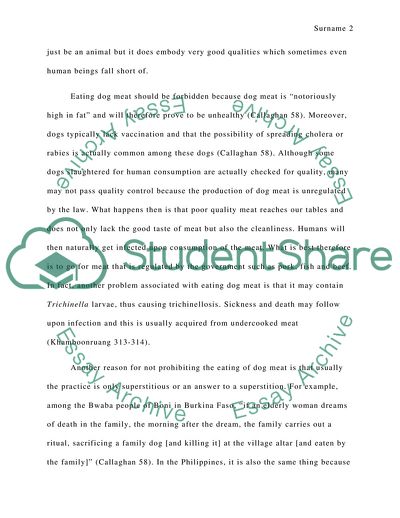Cite this document
(Eating Dog Meat in Asian Countries Term Paper Example | Topics and Well Written Essays - 2500 words, n.d.)
Eating Dog Meat in Asian Countries Term Paper Example | Topics and Well Written Essays - 2500 words. https://studentshare.org/social-science/1826509-eating-dog-meat-in-asian-countries
Eating Dog Meat in Asian Countries Term Paper Example | Topics and Well Written Essays - 2500 words. https://studentshare.org/social-science/1826509-eating-dog-meat-in-asian-countries
(Eating Dog Meat in Asian Countries Term Paper Example | Topics and Well Written Essays - 2500 Words)
Eating Dog Meat in Asian Countries Term Paper Example | Topics and Well Written Essays - 2500 Words. https://studentshare.org/social-science/1826509-eating-dog-meat-in-asian-countries.
Eating Dog Meat in Asian Countries Term Paper Example | Topics and Well Written Essays - 2500 Words. https://studentshare.org/social-science/1826509-eating-dog-meat-in-asian-countries.
“Eating Dog Meat in Asian Countries Term Paper Example | Topics and Well Written Essays - 2500 Words”. https://studentshare.org/social-science/1826509-eating-dog-meat-in-asian-countries.


